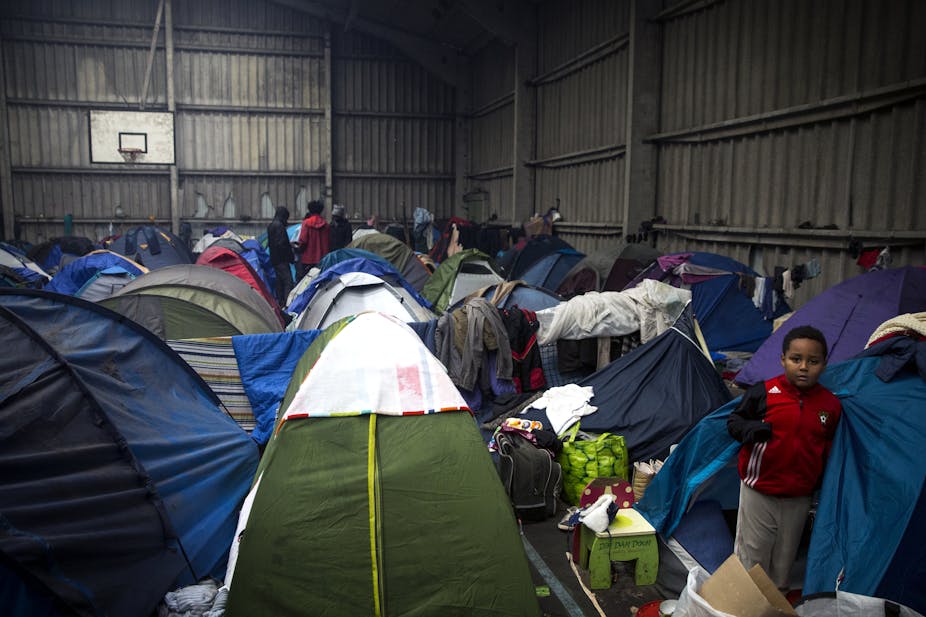We know they are there, beyond our borders. The huddled masses; the wretched of the earth; the refugees. We would just prefer not to see them. And when events force us to look – when ghost ships float adrift in the Mediterranean carrying 450 frightened Syrians, when children as young as five cross the Mexican desert alone – our outrage punctuates only continued inaction.
But there’s no room for ignorance as a defence. From the Pope to the UN Secretary-General to Angelina Jolie, the great, the good and the famous have condemned our humanitarian inertia in the face of migrants’ suffering, to little avail. The United Nations High Commission for Refugees has struggled to secure 130,000 resettlement places for Syrians desperately in need of sanctuary, despite a high-profile pledging conference in December.
The real challenge is not to establish the facts. We already know the facts. The real imperative is to understand why so many members of the general public remain unconvinced that this is our problem, and so many governments talk the language of sanctuary while offering only a handful of refugees entry under resettlement programmes (the UK, at last count, has admitted just 90 Syrians).
Because it is our problem too. As income inequality made the headlines at last week’s Davos summit, these refugee and migrants’ dangerous journeys are a reminder that borders are designed to perpetuate exclusion and inequality. But what’s less often acknowledged is that it’s not only migrants that suffer. Migration management is an industry. And at the moment it is an industry set up to benefit large international corporations at the expense of average citizens.
Good and bad refugees
In part, immigration is a blame game. Once refugees have embarked on their journeys, they are seen as “queue-jumpers” and “illegals” – even “terrorists”. We blame them for trying to game the system by paying their way to Europe. We blame the smugglers too, labelling them as traffickers for sinister effect.
All this directs public anger towards those foreigners cheating the system, while preserving the idea that pretty much every country in the West has a proud record of welcoming and helping refugees.
Conveniently, this means that restricting asylum arrivals – for instance by refusing to rescue distressed migrants at sea – can be presented as being necessary to preserve equity of access to asylum for the “real” refugee.
In this way, we can continue to square the circle. We may place increasingly severe restrictions on migration from poor countries towards the West: but there is still room for the deserving. If the system is dysfunctional, it is the fault of organised criminals and cheats. After all, even anti-immigration parties such as UKIP insist that they would allow genuine asylum applications.
It’s clear then, that this argument will not be won by appealing to charitable principles. And helpfully, there is growing evidence that we can make the case for change in a different way. We can show that it’s not just migrants who suffer as a result of immigration laws. Citizens suffer too.
The other immigration scam
The asylum economy and the migration industry draw in not only distressed migrants but also the working poor in Western countries. Border security, detention and deportation are fast-growing and profitable businesses. Multinational corporations have billion-dollar interests in ensuring that governments remain committed to the War on Illegal Migration. And the profits they make depend upon low-wage workers.
In much the same way that British weapons factories are legitimised by providing much-needed jobs for the country, border patrols, detention facilities and visa processing services employ tens of thousands of citizens, often for low wages and in geographically marginalised areas.
In March 2014, Exeter University researcher Jenny Allsopp travelled to Weymouth, an area of high unemployment where job opportunities are scarce.

Here, immigration detention was above all framed as an employment issue. Locals expressed relief that the decision to convert a prison in the area into an immigration removal centre would create jobs for some of the staff laid off from two recently closed prisons.
However the migration industry is no model employer. The jobs it provides are overwhelmingly low paid and precarious. Unions have consistently produced evidence that employees of companies and state border agencies are often poorly trained and constrained by unresponsive management structures that deliberately foster cultures of hostility.
Thus in offering much-needed local employment, but with poor pay and conditions, the migration industry actually entrenches local inequality and poverty, taking advantage of immobility in socially marginalised and geographically isolated areas.
But imagine if this migration security complex were replaced by a publicly funded “integration industry”. Private firms would no longer profit from policing borders – instead, local citizens could be employed at fair wages to help resettled refugees integrate into their new home. This is just one example of how our existing immigration system doesn’t operate in our own interests, and just one example of how it is possible to imagine an alternative to the status quo. Pragmatic migration policy can be progressive, and it can be positive. A humanitarian agenda is most likely to gain traction when we see our own interests being served too.
If we want to end the blame game and broker some kind of adequate response to refugee crises across the globe we need to spend more time showing how current restrictive migration policies do not operate in the interests of either migrants or citizens. We need to start thinking about how to build coalitions that negate the zero-sum equations of “us” and “them”, for only then will we stand a realistic chance of bridging the gap between just knowing about crisis migration, and acting to stop it.

